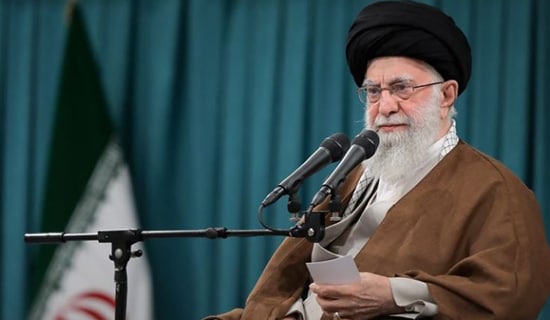
A protest by the women members of Jamaat-e-Islami Pakistan
Pakistan witnessed a series of mass protests during December 2010-January 2011 against any attempt to change the controversial blasphemy laws of Pakistan. In Pakistan, generally militant Islamists take it upon themselves to implement the blasphemy laws. Several people granted bail or acquitted in blasphemy cases have been murdered in courtrooms, and on January 4, 2011, an elite security guard assigned to protect Punjab Governor Salman Taseer assassinated him for urging amendments to the blasphemy laws.
One of the laws, Section 298-C of the Pakistan Penal Code (PPC), prohibits Ahmadi Muslims from calling themselves "Muslims" or preaching their faith. It should be noted that Ahmadi Muslims were legally declared as non-Muslims in 1974 by Pakistan for allegedly not believing Islam's Prophet Muhammad to be the final prophet.
Of several blasphemy laws in Pakistan, the Section 295-C of the PPC carries the death penalty for committing an act of blasphemy against Islam's Prophet Muhammad. Following is a guide to various sections of the Chapter XV of the PPC, regarding the "Offences Relating to Religion:"[1]
"Section 295: Harming or defiling a place of worship with intent to insult a religion
"Section 295-A: Deliberate and malicious acts intended to outrage the religious feelings of any section of society by insulting its religion or religious beliefs
"Section 295-B: Defiling the Holy Koran
"Section 295-C: Use of derogatory remarks regarding the Holy Prophet of Islam
"Section 296: Disturbing religious assembly
"Section 297: Trespassing on burial places
"Section 298: Uttering words with deliberate intent to wound religious feelings
"Section 298-A: Use of derogatory remarks regarding holy personages
"Section 298-B: Misuse of epithets, descriptions and titles reserved for certain holy personages or places
"Section 298-C: Person of Ahmadi group calling himself a Muslim or preaching or propagating his faith"
A report in the Dawn newspaper observed the following:[2]
"Out of all these laws, only Section 295-C – use of derogatory remarks about the Holy Prophet of Islam – carries the death penalty. Others carry various punishments including imprisonment and fines.
"Section 295-C is different from other blasphemy laws in another respect. Section 196 (prosecution of offences against the State) of the Criminal Procedure Code bars courts from taking cognizance of certain offences unless the complaint is made on the order of, or under authority from, the government, presumably so that laws governing such offences are not misused.
"After Section 295-A was introduced in the PPC in 1927, Section 196 was amended to cover it as well. But such a course was not adopted when Section 295-C was introduced, thereby allowing the courts to take cognizance of crimes under this section without requiring the government's order or authority."
[1] www.dawn.com (Pakistan), February 15, 2011.
[2] www.dawn.com (Pakistan), February 15, 2011.








